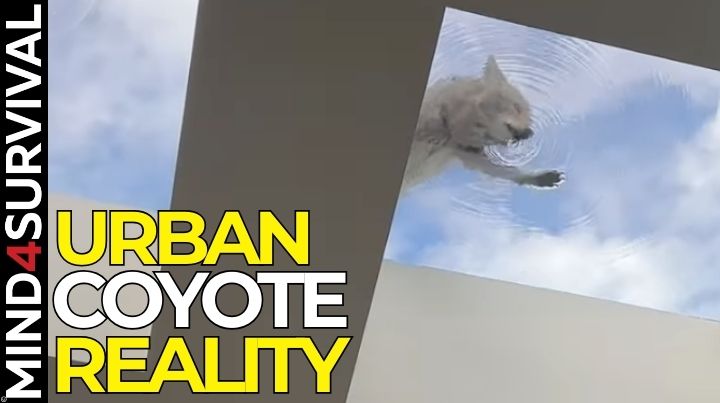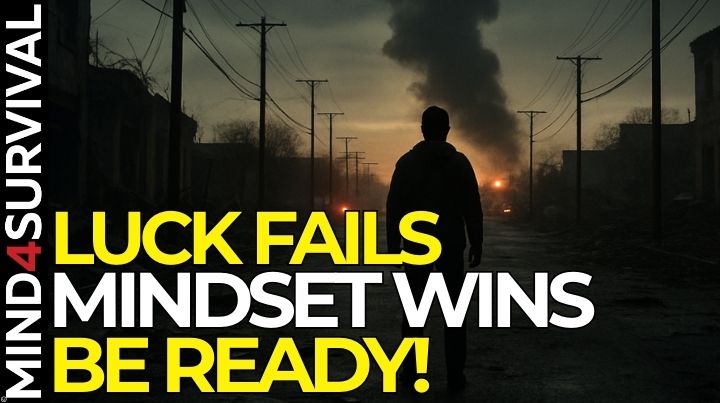Brian Talks with Changing Earth Author Sara Hathaway


Podcast: Play in new window | Download
Have you had experiences that put you in a position to use your preps? What if you had to live only on the food and water you have right now? How quickly could you evacuate your home? Have you gone without electricity or heat for an extended period of time?
As preppers, most of us have made our plans and stocked up on supplies. We have grand ideas about what we will do if this scenario happens. Or how we'll react if that scenario happens. But the hard truth is that we won't know how we'll react until the time has come when we have to make the choices, use the preps, or bug out to our chosen location.
Brian talks with Sara Hathaway, the author of The Changing Earth series of books and host of the Changing Earth podcast. Sara has some great prepper tips and ideas to share, both from her book series and her personal experiences. She has been able to put some of her preps to the test, both with bugging out and bugging in. She has systems that will have her and her family evacuated for wildfires in 5 minutes, or the ability to hunker down for an extended period of time with no electricity during an ice storm.
The Changing Earth
Sara's focus in her books and podcast is on the changes happening to our planet. Not climate change in particular, but the environmental changes like flooding and wildfires that are occurring naturally as a result of sharing the Earth with humans. Who will screw up the system first? Will it be the humans? Or the Earth?
She includes situations in her stories that allow her to share information on how to prepare and how to survive. Each book is a learning experience. She has taken this focus and used it to help her ensure her children are able to survive on their own, as well as sharing it on her website and podcast platforms for everyone free of charge.
Why Now?
Why are there more outspoken preppers now? People are noticing how fragile our society and our system are. It used to be just conspiracy theories. But people are seeing more and more of those theories coming true. People are paying attention.
The Lone Wolf
Sara feels that the more we spread the word about being a prepper, the more the people in our communities will be prepared themselves. It's group survival. If you are serious about prepping, you will need to think about your community. Are you really going to just shoot someone that shows up on your doorstep? No, because people will hear about it, and they're going to show up. They will want to take what you are protecting. The lone wolf idea is not a logical or realistic way to survive.
Who will be on patrol while you're tending to your garden? While you're sleeping? You need a decent-sized squad. Maybe you have a few people in your squad. Maybe you have 40 people. What will happen when a squad of 250 people show up at your gates and want in? The lone wolf doesn't work. The best idea is to form your squad now.
Make friends with your local farmers that may produce too much food. Get more chickens than you need and use the extra to trade for things others have.
But Isn't FEMA Going to Save Us?
Most folks have heard of FEMA. They know that they show up during disasters, and when asked why they don't prepare, they say that FEMA will save them. As preppers, we have learned that we should not wait on the government (or anyone else) to save us. FEMA's goal is to save as many people as possible. In a national disaster, they will triage the nation. They will decide who is worth saving and who is too far gone. They are not concerned with saving us as individuals. We need to be prepared and save ourselves.
Does FEMA Do Anything Good?
We may have a negative opinion of FEMA, but FEMA is actually an excellent resource for preparedness information. They publish checklists for different aspects of preparedness and safety. Use the information and the checklists to make sure you will not need to depend on them if a disaster hits.
So What Should We be Really Concerned About?
Disasters can come in many forms. It could be an earthquake. Maybe it's a hurricane. What about an ice storm? The key is to think about possible disasters for your area and make sure you prepare for them. Remember that the world and the climate are changing, so don't leave out any possibilities. Broaden your scope to include things, even if they feel unlikely.
Sara Shares her Tips and Ideas:
- Learn how to be a leader. You have been studying and preparing, and people are going to look to you for help.
- Make sure you and your family have an evacuation plan to get you out of town. During a disaster, there may be no way to get out on the usual main roads. You should know other routes to get to your destinations and, possibly, other ways to travel. Don't forget about alternatives such as trains/railroads.
- How will I know when to leave? When a hurricane is coming, there are days of warnings. But how do you know that it's time to pack up and go? Make a plan for it. We all should have a set line in our minds that is the point that we will go. Don't be afraid to be wrong. It's better to have acted and have what you need than to sit back until it's too late. If we wait until the disaster happens, our decision will be based on fear, not fact. Practice evacuating. Try to be out in 5 minutes.
- Water storage is critical, and you should keep it somewhere that won't freeze. If you do store it somewhere that could freeze, make sure it is in small enough containers to carry it inside if needed.
Bonus Winter Tips
- An idea that Sara shared for freezing temperatures – set up a small tent in your living room and put the mattress in there. The area is smaller so you can stay warmer. And close off the rooms you aren't using. Another tip – don't boil water to keep warm. Ice will form inside your house.
- Do you have chickens or other animals? Don't let their water freeze up. To keep that from happening:
- Use a black rubber tub.
- Put ping pong balls into the tub and move them around occasionally.
- Start with warm water or use a heated water base.
- Put ducks with your chickens. They will keep the water from freezing up.
- Use a saltwater float. Add salt water to a plastic bottle and let it float in the water. It will keep water from forming.
Where Can I Hear More From Sara?
- Visit her website: AuthorSaraFHathaway.com
- Check out the Changing Earth podcast live on Sundays at Prepper Broadcasting
- Try out the Changing Earth Audio Drama
- Look for the Changing Earth TV Series coming soon!
Related Articles
FREE Guide
Read the Best Seller
Join Mind4Survival
Stay informed by joining the Mind4Survival! 100% Secure! 0% Spam!
Affiliate Disclosure...
Mind4Survival is a free, reader supported information resource. If you make a purchase through our link, we may, at no cost to your, receive an affiliate commission.
Do You Want To Be Ready No Matter What?

Download our free 39-page guide with interactive, 7-Day Emergency Kit Checklist and take the first step toward real preparedness.
- Know exactly where to start.
- Save time and money.
- How-to build a complete Basic Emergency Kit.
- Level up your safety and security.
Join Mind4Survival
Stay informed by joining the Mind4Survival! 100% Secure! 0% Spam!





